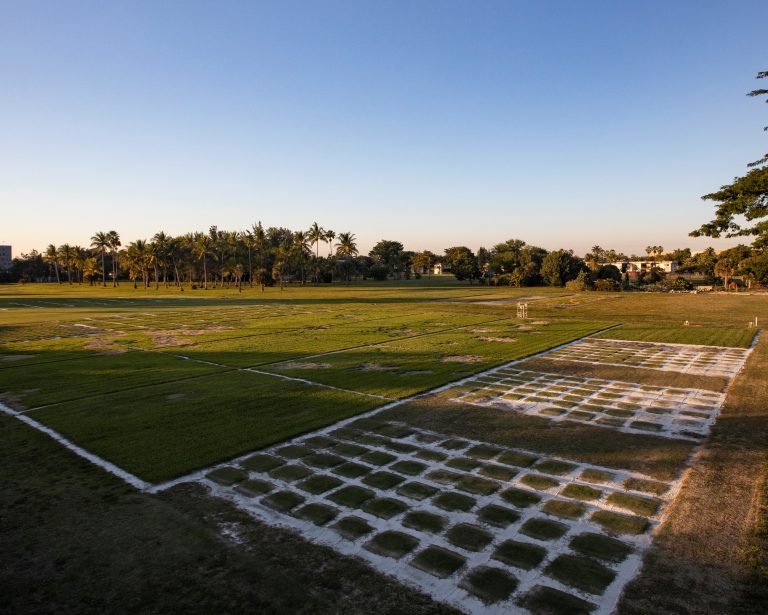FORT LAUDERDALE, Fla. – Turfgrass research will be highlighted as part of the 33rd Annual South Florida Turfgrass Field Day and Exposition, scheduled for March 31 at the UF/IFAS Fort Lauderdale Research and Education Center in Fort Lauderdale.
The event is organized in partnership with the South Florida Golf Course Superintendents Association of America.

The field day will include tours of the 4.5-acre turfgrass research plots. Participants can choose from a golf or landscape research tour, which for the first time, will be offered in Spanish.
“While the COVID-19 pandemic put a hiatus on the annual field day and expo since 2020, our research to make South Florida lawns sustainable never stopped,” said Marco Schiavon, assistant professor of turfgrass science at the research center. “UF/IFAS is celebrating our 100th anniversary in turfgrass science, and our turf research in South Florida has led to the development of some of the best management practices for golf courses and private property.”
The event is designed for various audiences including homeowners, professional landscapers, golf course superintendents, parks and recreation sports turf directors and more. Registration is required for the day that provides speakers, lunch and a vendor show. Tickets range from $47.25 for early registration that ends on March 25 to $52.50 for general admission beginning March 25.
Topics tailored for golf course industry participants include new and upcoming nematode management tools for turf, precision weed control, irrigation using recycled water and a research update on controlling Goosegrass in bermudagrass.
Landscape professionals will learn about new St. Augustinegrass cultivar blends, research on Citrablue ® St. Augustinegrass, alternatives to urban landscapes and variations in bahiagrass. An afternoon session will provide participants options that include identifying St. Augustinegrass varieties, building wind resistance in a tree canopy and weed control in Florida lawns.
Turfgrass lawns provide communities with environmental benefits such as soil erosion control, carbon sequestration, water filtration, noise buffering, nutrient runoff capture, pollutant absorption and aesthetic enhancement, said Schiavon.
“Turfgrass is one of the largest irrigated crops grown in the United States and is one that promotes high revenues for many industries,” he said. “Everyone wants a beautiful lawn, and our applied research is focused on preserving those aesthetic and environmental values of turfgrass with the goal of reducing inputs such as fertilizers and irrigation.










